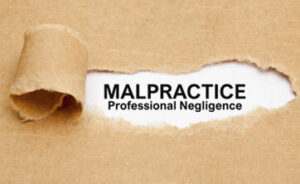 Medical malpractice involves failure in treatment, failure to act or inaction and provides wrong treatment that results to harm, loss of lives among them. The malpractice or negligence most of the time encompasses a medical mishap. This could be diagnosis, medication dosage, health management, treatment, or aftercare. Medical malpractice law allows the patient to sue for any damage that the patient may have suffered from acts of negligence by providers.
Medical malpractice involves failure in treatment, failure to act or inaction and provides wrong treatment that results to harm, loss of lives among them. The malpractice or negligence most of the time encompasses a medical mishap. This could be diagnosis, medication dosage, health management, treatment, or aftercare. Medical malpractice law allows the patient to sue for any damage that the patient may have suffered from acts of negligence by providers.
What Does the Case of a Malpractice Entail?
This is the one who brings a case against another individual or an organization. The person who complains is known as the plaintiff. This can be the patient, a legally authorized representative of the patient or, in the situation of the death of the patient, the personal representative of the patient’s estate. In legal proceeding, the plaintiff is that person who takes action against another person in a court of law, the complainant, the person who prosecutes.
The defendant is the respondent or the one who is being accused or the one who has acted in a negative way that has led to the lawsuit. In a medical malpractice suit, it is the health care provider, this could be a doctor, a nurse, a therapist or any medical provider of the elderly you are in contact with. That being the case getting sacked does not necessarily exempt them from legal responsibility because even those “acting under the authority of their superiors” may be held legally responsible for negligence. They are usually the party that TRIUMPHS in the given case whether they are the plaintiff or the defendant.
If the defendant is acquitted in the case, the plaintiff has failed and he or she will not be paid any money:
The party who is against the decision made by the judge is the losing party.
It is the judge or it is the jury, depending on what kind of trial you are in deliberation for.
Important Factors of The Case
The plaintiff has to prove that four elements existed in order to succeed in a medical malpractice claim:
- A duty was held by the health care provider or the hospital
- Practicable option was not exercised owing to breach of duty since the health care provider or the hospital in question failed to meet the required standard of duty.
- The incident led to an injury and it was almost a direct correlation of the injury.
- Significant harm was done for the patient in all the aspects, that is, physiological, psychological or even financial.
The Process
- First off, the plaintiff or his/her attorney must institute an action in a court of law.
- During the trial, the following are the chief pre-trial and trial procedures that have to be followed: Chief pre-trial procedure: discovery process, such requests may comprise of documents, depose and interrogatories.
- If the parties wish to so, they can do so out of court. In this case there will be no trial of the case.
- If they do not agree the case will be set for trial. In simple terms, the plaintiff must be able to convince the court beyond reasonable doubt in relation to negligence by the defendant.
- The plaintiff & the defendant choose to represent the experts to explain what standard of care was required
- These calls for all such evidence to be considered in order to determine who amongst the parties has been the most credible.
- In layman’s terms, it will be in the form of a verdict by the fact-finder for the party in the right.
- In other words, it is the judge’s prerogative to determine who should be awarded the case. In case it is the plaintiff, then the judge will determine on the issue of damages.
- The party that is on the receiving end may demand for a new trial.
- In some courts, sort of additur occurs, where the plaintiff if they desire to get a larger judgement, may move for assessment of the damages and get a larger amount.
- When a defendant feels that a very large judgment has been entered against them, then they may seek a remittitur, whereby the defendant asks the court to lower the number of damages.
- Each of the parties may take an appeal from such judgment.
To determine the value of your specific medical malpractice claim, consult an experienced attorney.